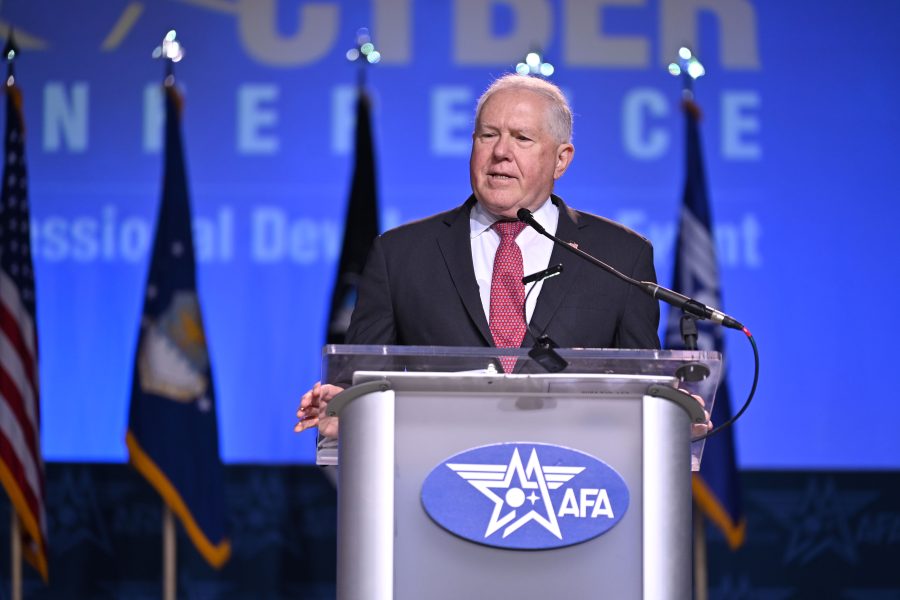In his first three years as Secretary of the Air Force, Frank Kendall has pushed for a sweeping overhaul of the department. During his keynote address at AFA’s Air, Space & Cyber Conference on Sept. 16, Kendall said he would like to keep working on those efforts into 2025 and beyond as part of the next presidential administration.
“What I’m not doing today is not a farewell address,” Kendall told a packed room of Airmen, Guardians, and more, acknowledging the upcoming presidential election and the fact that President Joe Biden, who appointed Kendall, will soon leave office.
“My hope is that I will have the opportunity to continue to serve” said Kendall. “If not, you can be certain I will be working as hard as I can, for as long as I can, to prepare the Department of the Air Force for a conflict that is not inevitable but may be becoming more likely over time.”
As a political appointee, Kendall’s continued service will depend on the next president—either Donald Trump or Kamala Harris.
Kendall’s eagerness to keep going, he said, is rooted in the mantra for his tenure: “China, China, China.” Elsewhere in his keynote, Kendall said he has instructed staff to no longer refer to China as “an emerging” or “future” threat; China is a threat “now,” he said. It is continuing to grow a “massive inventory” of increasingly sophisticated aircraft and missiles that could target U.S. bases or aircraft carriers in a potential Pacific war, he added, while developing worrying counterspace capabilities.
War with the People’s Republic of China is not inevitable, but given China’s provocative actions in territorial disputes and its seeming preparations for major conflict—president Xi Jinping has ordered his military to be ready to retake Taiwan by force if needed by 2027, Kendall noted—“the likelihood is increasing” of a conflict and the U.S. must be ready to prevail. Russia, more than two years into its invasion of Ukraine, also remains “an acute threat,” Kendall added.
Kendall also touched on many of the major efforts he has undertaken as Air Force Secretary during his speech, including his “Operational Imperatives,” cross-cutting operational enablers, and re-optimization decisions announced earlier this year.
In particular, Kendall declared that, despite a slowdown in the Next-Generation Air Dominance Program, the Air Force is not backing away from the air superiority mission. Despite slowing the NGAD program down to find ways to incorporate even newer technology and get costs down, Kendall insisted the program is going forward.
“We are not walking away from the core United States Air Force function of providing air superiority,” he insisted and repeated.



